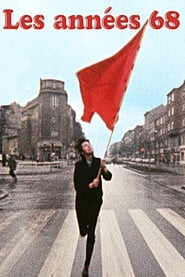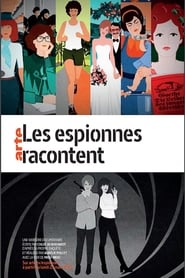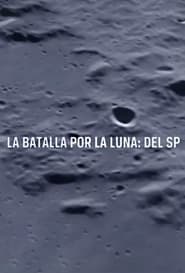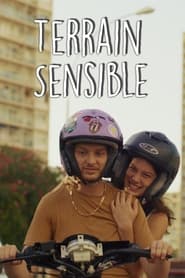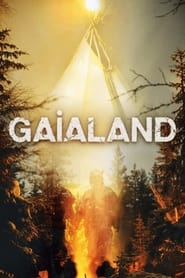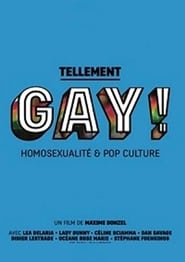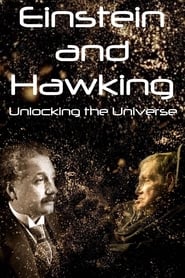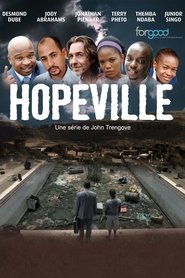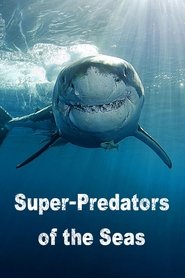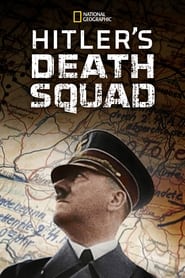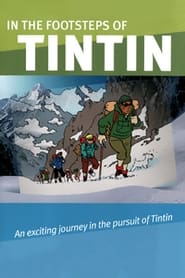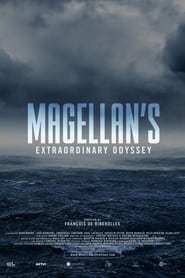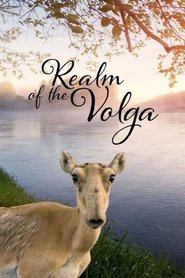Arte TV Series - Page 13
-
1968 - The Global Revolt
2018
In 1968, young people from Berkeley to Paris and from Prague to Tokyo rose up against the world they were being offered. In this sprawling but riveting two-part documentary, veteran filmmaker Don Kent tracks the development, decline and legacy of this global movement against the fiery backdrop of the Vietnam War, civil rights struggles, dueling ideologies, and international coup d’états. A time capsule full of evocative sights and sounds, narrated by leading historians and political activists, Les années 68 effortlessly connects apparently discrete events to form a blazingly timely analysis of a decade that shaped the way we live now. -
Köstliches Sizilien
2022
Köstliches Sizilien
2022
-
Battle for the Moon: 1957-1969
2019
star 8July 20, 1969. Nearly six hundred million people have their eyes glued to their televisions: Neil Armstrong is just about to make one of mankind’s oldest dreams come true. After more than twenty years of intense struggle between the Americans and the Soviets, the biggest adventure for humanity in the 20th century has just been achieved. As a climax of the Cold War, the conquest of the moon was a true saga, passionate, epic and filled with twists and turns. It wasn’t just a scientific competition between East and West; It was also a fabulous adventure combining political history, technological exploits, acts of bravery and personal dramas. -
Marseille, my love
2023
Marseille, my love
2023
Marseille, summer. Inès, a girl who returns to her home city, meets Slimane, a boy who doesn't even dream about other places. The story revolves around one week, each day marked by encounters of the two different cliques; a story which evolves around a basketball court of the neighbourhood. -
Gaialand
2022
star 8In the Paris of the 80's, a group of young idealists, sensing an ecological catastrophe to come, want to show that another world is possible. Guided by a mysterious Amerindian shaman, they practice veganism, set up organic stores and live in teepees in the middle of buildings. Quickly accused by their families and the press of being manipulated, they start a long ecological march through Europe. A chase begins between the members of this community and those who accuse them of being under their control. After 10 years of wandering, the "Tribe" finally settles in Finland, in the extreme conditions of the Great North, to live its Utopia of a tribal life in harmony with nature: how far are they willing to save "Gaïaland"? Thanks to unique archives and rare testimonies of former followers, the "Gaïaland" series dives into the fascinating true story of this community and its demons. -
Einstein and Hawking: Masters of Our Universe
2020
star 8In the early 1900s, Albert Einstein developed an idea - called Relativity - that changed our understanding of reality. It explained how both space and time were flexible - and how the Universe was made of a four-dimensional fabric called space-time. This single idea gave us a new way to understand the force of gravity, explained how the stars were born and introduced us to the concept of the big bang. And, in the hands of Stephen Hawking, it allowed us to understand the most extreme monsters in the Universe - black holes. This two-part BBC documentary explores how two of the most famous scientists of the 20th Century transformed our understanding of the Universe - thus changing the world. -
Hopeville
2009
star 7.8In a dusty small South African town, a man in search of forgiveness tries to rebuild a relationship with the son he abandoned when he was a child, while renovating a run-down outdoor swimming pool. A feel-good series with biting humor that reflects both the ills of South African society and its resilience. -
Chiefs
2001
Chiefs
2001
These films brings to life the power, spirit and mystery of the leaders of First Nations, and separates the myths from the men and battles. -
Fashion !
2012
star 73 decades told via the careers of emblematic designers, combining major historical events with minor happenings, anecdotes with fate and fortune, and pop nuggets with collective drama. The collection looks back over 3 decades of fashion (from 1980 to date), from the carefree emergence of the star-designer of the 1980s, to the arrival on the market of the major luxury groups and the toughening-up of the system. -
Das Reich: Hitler's Death Squads
2015
star 6D-Day, June 6th, 1944. As the Allies storm the beaches of Normandy, Hitler orders the return of the Das Reich, the infamous Panzer elite division known for its mass murders in Ukraine and Belarus, based at that time in southwest of France. Its mission: to push the Allies back into the Atlantic and turn the tide of the conflict in favor of the Nazi Germany. -
Arte Journal
2010
Arte Journal
2010
-
In the Footsteps of Tintin
2010
star 7.7A series of five documentary films entitled In the footsteps of Tintin, following Tintin with a cameraman! The films are based on the theme ‘dreams and reality’. How many people, young and old, have dreamed of being a fearless hero, of travelling around the world defying danger, and of exploring far-off lands, like Tintin? This series is based on the close relationship between Hergé’s drawings, and real people and places. Arresting and inspiring sequences of images, video and sound from exotic countries, alongside pictures from Tintin’s adventures and all kinds research material accumulated by Hergé during his lifetime, make for an unforgettable experience. If you really want to step into Hergé’s universe, what better way to do so than to follow his adventures first-hand, by foot, on horseback, by camel, by car, by boat, by train and by aeroplane! -
Realm of the Volga
2019
star 8.8The Volga is a myth, a unique river of superlatives and the natural lifeline of Russia. With a length of more than 3,500 kilometers, it is the most powerful and water-rich river in Europe. Their catchment area is larger than France, Spain and Portugal combined. While all the other great rivers on earth flow into an ocean, the Volga fills its own sea, the largest inland lake on earth, the Caspian Sea. On the way there it flows through rustic forest areas, through wide steppes and dry semi-deserts, each of which is home to a unique wildlife. In three years of filming and on countless expeditions, the Altayfilm team and their Russian colleagues managed to capture the fascinating stream in grandiose pictures and to fully portray it for the first time. Opulent pictures and breathtaking aerial photographs alternate with animal behavior that has rarely been documented before, told with fine humor and a special lightness.

